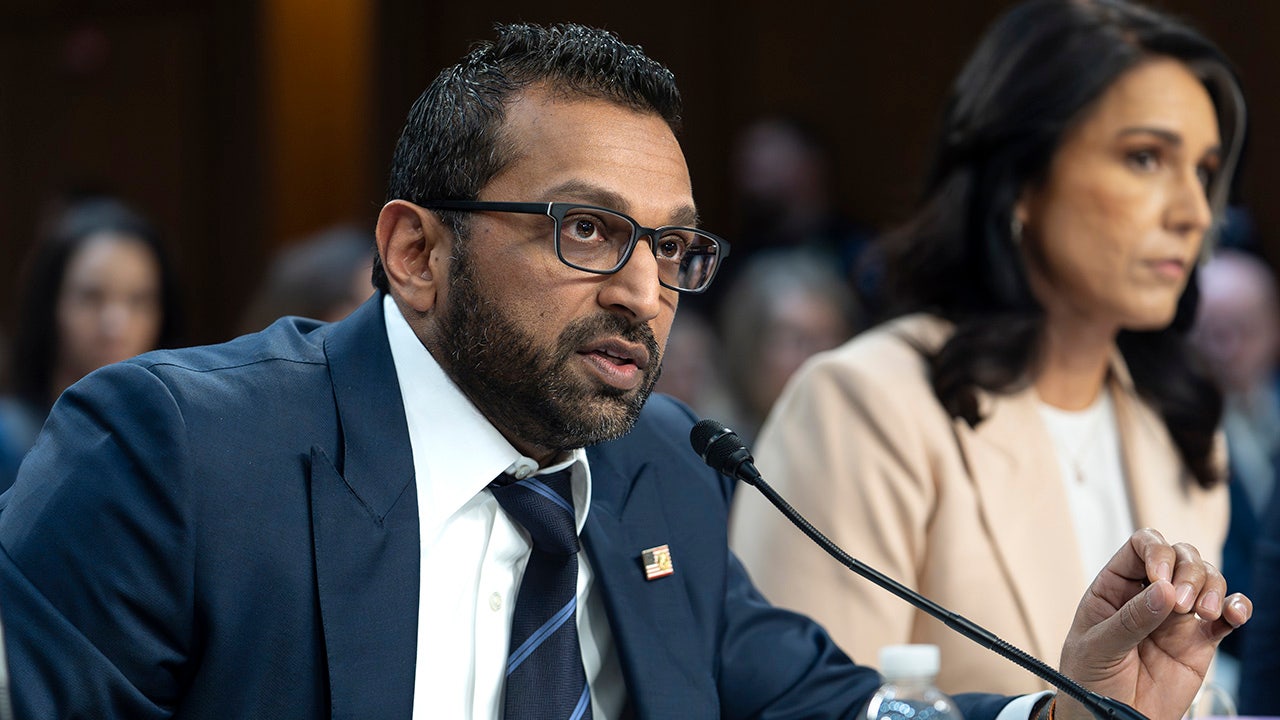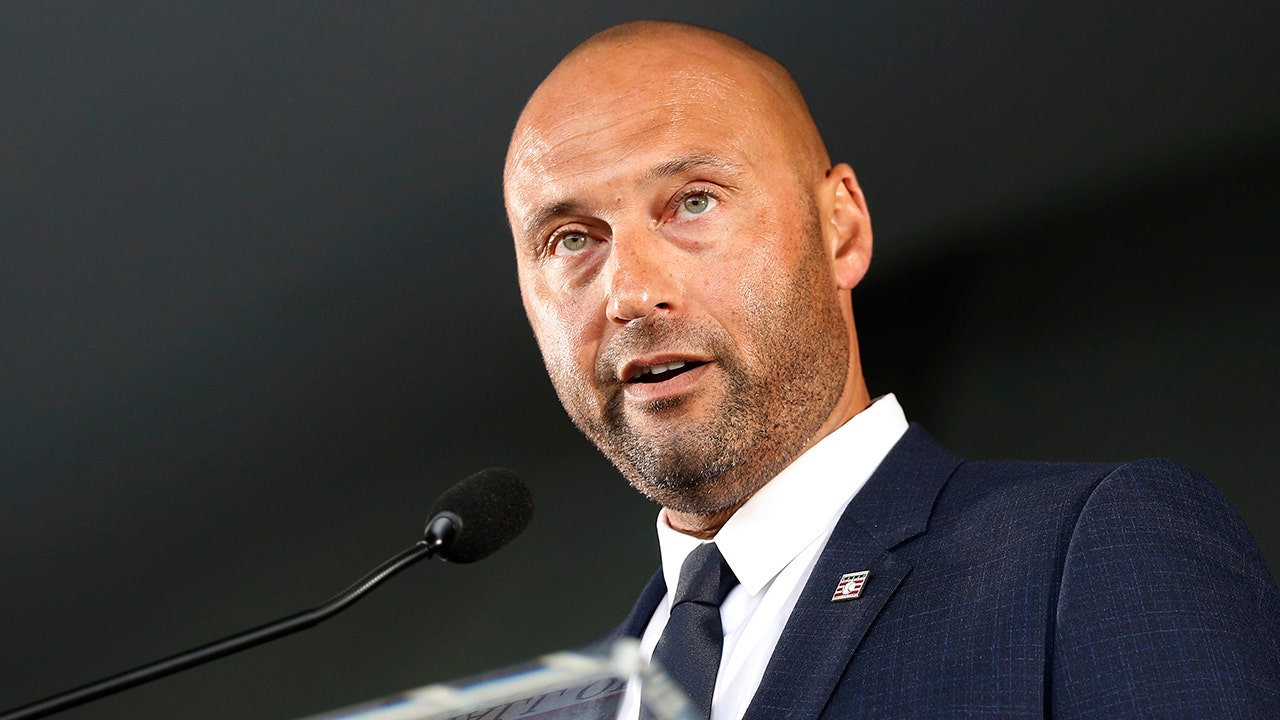Hill Republican defenders of clean energy tax incentives in the Democrats' 2022 climate law will soon have to decide how far to push their demands.
For months, they have been firing off letters urging leaders to spare at least some of the credits to benefit solar energy, nuclear, hydrogen and other technologies. Speaker Mike Johnson promised to use a "scalpel" and not a "sledgehammer" to the suite of green subsidies included in the Inflation Reduction Act.
But in the tax portion of the GOP's megabill, approved by the Ways and Means Committee earlier this week, the credits would in fact receive a bludgeoning, with a slew of climate tax credits now slated for phase-downs or full-out repeals that would disrupt clean energy projects across the country, including in red districts and states. And it's exactly what many Republicans feared would happen.
“I hate to say — it’s not as bad as I thought it was going to be, but it’s still pretty bad,” said Rep. Andrew Garbarino (R-N.Y.), who is the co-chair of the House Bipartisan Climate Solutions Caucus and has been at the forefront of advocating for the credits to be preserved amid the GOP's takeover of Washington this year.
"I’m not happy with the way the bill is currently written," Garbarino said Thursday. "We have alternative language and it’s something we’re going to work with leadership to try to get them to implement."
The question now is whether Garbarino and his allies will threaten to oppose the tax, energy and national security spending legislation that carries much of President Donald Trump's agenda unless leadership backs off its attacks on the credits.
Voting to tank the underlying megabill would put them at risk of enduring Trump's ire — but letting their colleagues steamroll progress on major investments in their communities could make them crosswise with their constituents.
It's a potent dilemma for Republicans like Rep. Jen Kiggans of Virginia, who barely won reelection in her swing district last year. Kiggans said in an interview Thursday that she and other GOP lawmakers spoke with Johnson about the tax credits on the House floor and were preparing a formal document with their asks.
Those requests would follow a statement she and 13 other House Republicans released the day before that urged leadership for a narrow set of changes to the phaseouts and rollbacks approved by the House Ways and Means Committee.
But Kiggans, who noted projects in her state that have reaped rewards from the climate law tax incentives, said she wasn't at the point of making threats.
“I'm not going to tell you it's a red line because I don't know what the end product is," Kiggans added. "Across the country, there is a huge economic impact that would happen if we just cut these things off, and that that was kind of our concern.”
Rep. Buddy Carter (R-Ga.), whose district hosts a car and battery plant that benefits from Inflation Reduction Act tax credits, has been even more direct that he doesn't plan to put up a fight.
"For me, it’s not a red line," Carter said back in March after joining one of the letters to leadership defending the incentives from Republicans who want to repeal the entire climate law. "For some people on that letter, it may be."
Carter — who is now running for Senate in 2026 and could be relying on Trump's endorsement in a potentially competitive primary — has historically been fiercely, unapologetically protective of his Hyundai plant, one of the biggest investments in his state's history. A tax credit for domestic battery manufacturing, created by the Democrats' climate law, is among the programs now being targeted for a phase-out.
The same is true for Rep. Nick LaLota (R-N.Y.), who in the past has called for preserving some climate law credits but is now choosing instead to prioritize securing an agreement on how much to cap a key state and local tax deduction that is paramount to lawmakers from New York, New Jersey and California. Garbarino is also involved in the so-called SALT negotiations.
"The energy tax credits are important to many members like me," said LaLota, but added, "there are a lot of ingredients in the one big, beautiful bill."
Another wrinkle: If Republicans leaders give in to the lawmakers wanting more SALT deductions, there would be less money available to reinstate other programs that have been phased out or scrapped to recoup savings to pay for Trump's bill.
The House Budget Committee is due Friday to mark up a piece of legislation that encompasses the draft bills advanced by 11 other committees over the past month. Republicans from across the conference's ideological spectrum are lamenting a number of outstanding issues with the proposal, from the clean energy credits and SALT to Medicaid cuts and an overhaul of federal pension payments. A group of hard-liners with no qualms about disrupting the process to get their way have asked Johnsonto agree to an even faster timeline for drawing down the credits.
“The bill is almost in final form," Johnson told reporters Thursday. "There's a lot of things on the table, a lot of ideas, a lot of possibilities that we have, and we will work through those things together deliberately, as we always do."
House Majority Leader Steve Scalise (R-La.), when asked specifically about what discussions he was having with lawmakers on the tax credits, said in an interview Thursday, “we’re continuing to have conversation with our members on final details, but all of these credits will phase out over time.”
If Republicans in favor of preserving the green incentives don't prevail in getting leadership to reverse course on the Ways and Means' handling of the matter, their next hope is in the Senate, where Republicans have made it abundantly clear they aren't going to accept the House's offer without major changes across the board.
That chamber has several Republican lawmakers who want to keep at least some of the climate law credits, including Lisa Murkowski of Alaska and John Curtis of Utah.
Sen. Kevin Cramer (R-N.D.) said language to phase out technology-neutral clean electricity tax credits beginning in 2029 would hurt nascent power sources that the GOP favors like advanced nuclear reactors and geothermal energy: "We’ll have to change that. I don’t think it’s fair to treat an emerging technology the same as a 30-year-old technology.”
Companies and trade associations are also blitzing congressional offices to make their case before it’s too late, including the Solar Energy Industries Association.
"I think a number of Republicans have significant insight into how our companies are working, and why certainty really matters for us,” said SEIA CEO Abigail Ross Hopper. “There's absolutely people in that room that understand the problems we have with it.”
But they're up against not only fiscal hawks unsympathetic to climate spending but pro-credit Republicans who have no problem with their leadership's handling of the issue. That includes Rep. Blake Moore of Utah, the vice-chair of the House Republican Conference who sits on the Ways and Means Committee with jurisdiction over tax policy.
“I don’t know how we do anything different than what we just did,” said Moore. “I could be blindsided, but I think we found a nice sweet spot.”
Josh Siegel contributed to this report.
.png)
 German (DE)
German (DE)  English (US)
English (US)  Spanish (ES)
Spanish (ES)  French (FR)
French (FR)  Hindi (IN)
Hindi (IN)  Italian (IT)
Italian (IT)  Russian (RU)
Russian (RU) 








Comments